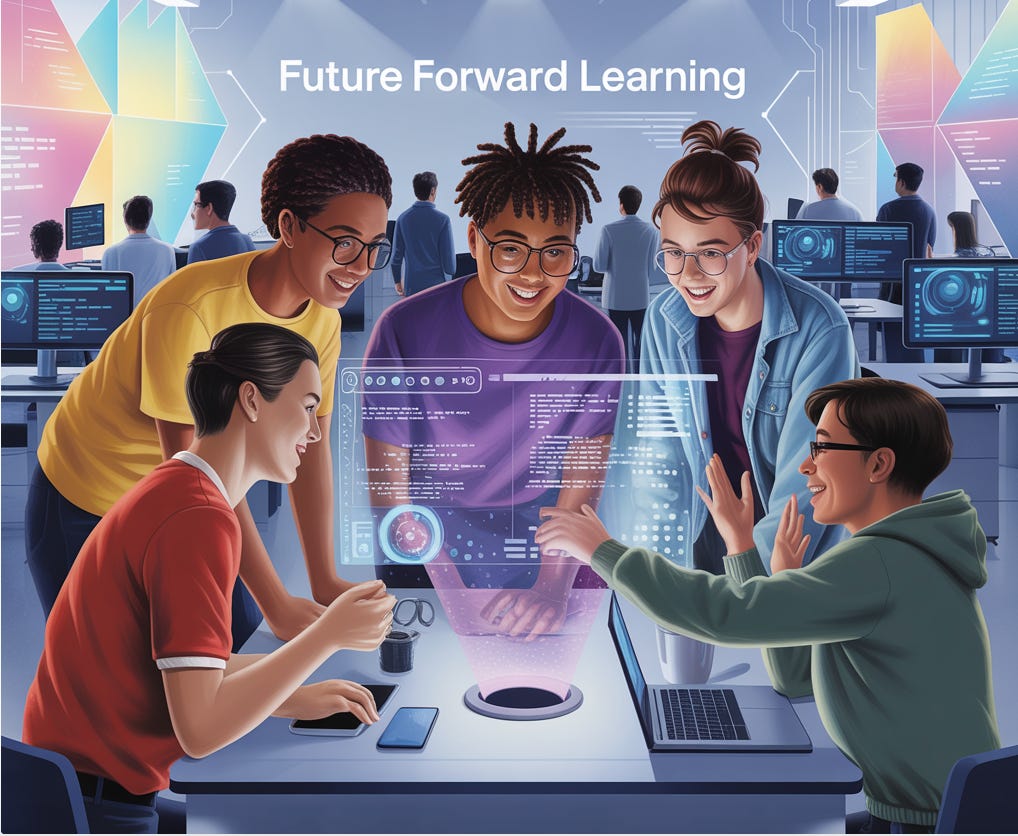Instructional Methods, Not AI, are Causing Cheating and Destroying Critical Thinking
(T)hey often tell me they’ve learned more in debate than in all of their other classes combined
Two provocative stories have emerged lately —
(a) AI Will Destroy Critical Thinking in K-12
(b) Everyone is Cheating Their Way Through College
These are obviously a bit dramatic. Critical thinking will not be ‘destroyed,’ and ‘everyone’ is not cheating.
Nonetheless, there is some truth to both of these. For various reasons, a significant portion of the education space refuses to acknowledge the reality of AI and continues to hand out assignments that can be easily completed by AI better than students in an undetected way (something many people who are/were ignored have been saying would happen since the spring of 2023).
And for now I’ll ignore the situation that colleges/universities are going to enroll hundreds of thousands of kids into majors this fall for which there will be few if any jobs when the students graduate. Schools will still enroll students in these majors because, well, they don’t have time (they are busy) to do anything else and they have to meet enrollment targets.
Students borrow. Schools repeat.
Teachers and professors rage. They are too busy to to make so many needed changes.
Little in education changes. The new industorial world marches on.
In my mind, the extra sad thing is that educators could do a lot to help students prepare for the AI world as well as produce more reliable markers of what students are learning by simply altering their instructional strategies to promote more process and performative based assessments.
I’ve been coaching debate for 35 years. Over the last few years, I’ve strongly encouraged my students to use AI to help them prepare speeches, rebuttals, questioning, etc. As much as possible, AI is inextricably intertwined with their preparation. I’ve encouraged them to treat AI as a teammate and a coach that can help them prepare.
Their critical thinking has not declined.
In fact, they often tell me they’ve learned more in debate than in all of their other classes combined. Why? Because they can’t just cram for a test and forget it; their arguments have to evolve across tournaments; the depth of knowledge required is greater to win a debate is greater than what is needed to do well on any test; we debate interesting/relevant topics (one student even told me she likes debate because she learns what is going on in the world — quite a sad commentary on the rest of education, if you think about); they have to construct, defend, and refute arguments; they have to write, think, and prepare to speak all at the same time.
Everyone doesn’t like debate, and that is well and good. But there are other approaches — Project Based Learning (PBL), experiential learning, various forms of oral presentations, portfolios, etc. Take your pick. Any of these will work.
But, of course, a lot of education will double-down on the status quo. They’ll circle paper wagons, purchasing writing detectors and not funding their debate programs. They’ll inore the reality that we are arguably getting close to a fast take-off where AIs will build AIs that can do most white collar work by 2030 and most labor work shortly their after, as robots replace people in manufacturing.
But it’s the students who are “cheating”…and it is the students’ critical thimking that is being “destroyed…”. OK.
Maybe they’re just busy.
__
Educators can do a lot more without learning to be machine learning researchers.
Debate, project-based learning, experiential learning, and developing portfolios collectively prepare students effectively for an AI-driven world by emphasizing human-centered skills that AI systems complement rather than replace.
Debate sharpens critical thinking, effective communication, and persuasive abilities—skills crucial for assessing and refining the outputs of AI. Debaters must rapidly evaluate complex information, distinguish credible sources from misinformation, and formulate responses. This builds human judgment capabilities necessary to oversee AI-generated content and decisions.
Project-based learning (PBL) immerses students in authentic, real-world problems, requiring them to collaborate, innovate, and continuously adapt. This fosters adaptability and creative problem-solving, enabling students to effectively integrate AI tools into their processes, leveraging them for deeper insights rather than relying passively on automated solutions.
Experiential learning emphasizes direct engagement and reflection, helping students learn from their experiences rather than solely through rote memorization. This approach develops self-driven, lifelong learners who proactively update their skills and knowledge—a necessity in an AI-influenced economy where constant technological evolution demands ongoing human adaptation.
Finally, developing portfolios cultivates students' ability to document and articulate their learning journeys, creativity, and unique strengths. As AI increasingly handles routine tasks, students who can clearly showcase original thought, innovation, and skillful AI integration will stand out professionally. Portfolios provide tangible evidence of these capabilities, helping students secure opportunities where their distinctly human contributions are valued most.
Together, these methods prepare students not just to coexist with AI, but to lead, collaborate, and innovate in a future where AI is pervasive.
If these methods were more prominent in schools for the last 30 years, we might be in better shape. But we didn’t, and now many parts of education are in for a rough relevancy ride. I guess we all are.






